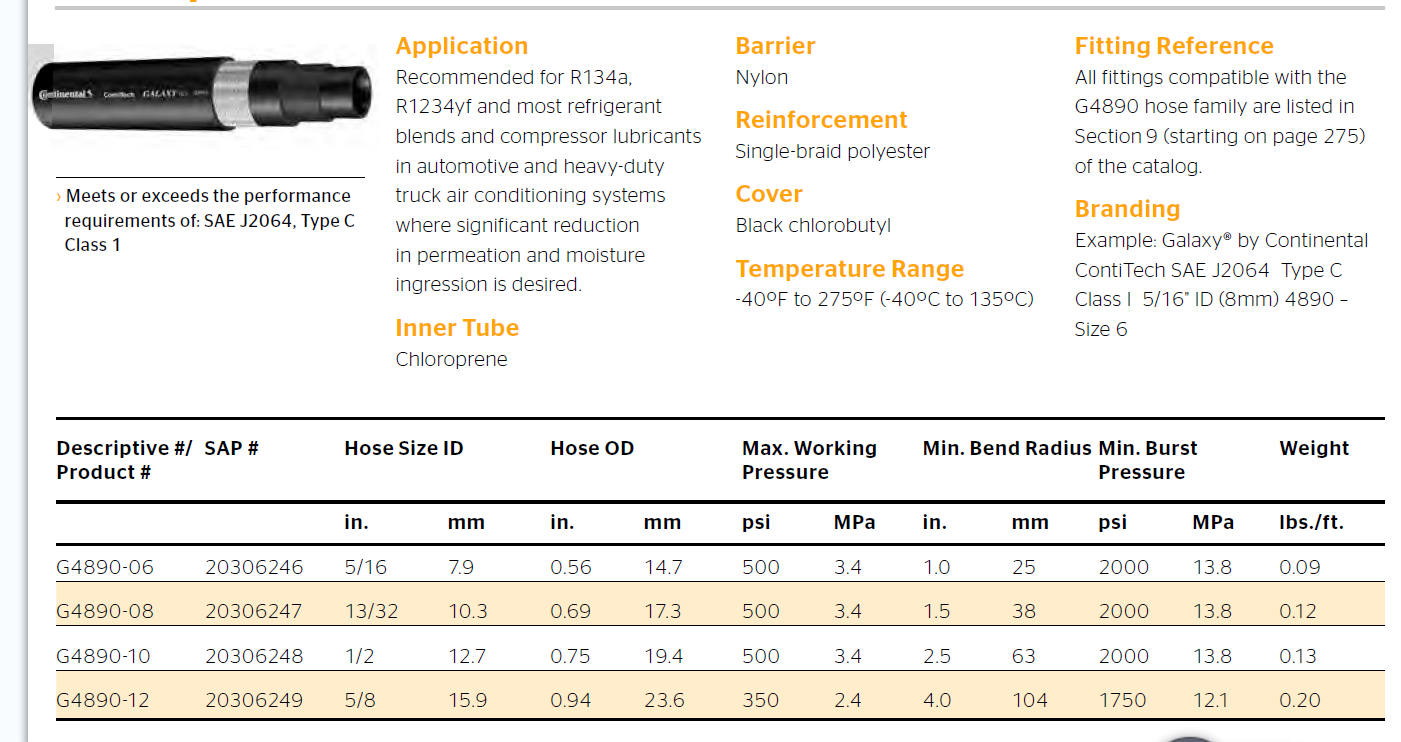Choosing the Right Hose for Diesel Fuel Line Applications
Set . 28, 2024 19:24 Back to list
Choosing the Right Hose for Diesel Fuel Line Applications
The Importance of Diesel Fuel Line Hoses in Modern Vehicles
In the realm of automotive engineering, every component plays a crucial role in ensuring the optimal performance and safety of a vehicle. One such component that often goes unnoticed is the diesel fuel line hose. This seemingly inconspicuous piece of tubing is essential for the efficient operation of diesel engines, which are widely used in various applications, from commercial trucks to agricultural equipment. Understanding the functions and the importance of diesel fuel line hoses can help vehicle owners appreciate their role in overall vehicle health.
What is a Diesel Fuel Line Hose?
A diesel fuel line hose is specially designed to transport diesel fuel from the tank to the engine. These hoses are typically made from durable materials that can withstand high pressures and resist degradation from fuel. Unlike standard rubber hoses, diesel fuel line hoses are constructed to meet specific safety and performance standards due to the unique properties of diesel fuel. High-quality hoses can endure the heat generated by the engine and prevent leaks that could lead to safety hazards or reduced fuel efficiency.
The Functionality of Diesel Fuel Line Hoses
The primary function of a diesel fuel line hose is to ensure a steady and reliable flow of fuel to the engine. In diesel-powered vehicles, fuel is pressurized before being injected into the combustion chamber. A well-functioning fuel line hose ensures that the right amount of fuel reaches the engine at the correct pressure. Any weak link in this system, such as a worn-out or damaged hose, can lead to fuel starvation or excessive pressure, resulting in poor engine performance or even catastrophic failure.
Moreover, diesel fuel line hoses must handle various operating conditions, including temperature fluctuations and exposure to diesel fuel's chemical properties. As diesel fuel can contain impurities, hoses must also be resistant to wear and tear from particulate matter typically found in fuel systems. A compromised fuel line can lead directly to issues such as clogged fuel injectors, reduced horsepower, and increased emissions, which is why routine maintenance and inspection are critical.
Signs of a Failing Diesel Fuel Line Hose
diesel fuel line hose

Vehicle owners should be vigilant and aware of the signs indicating that a diesel fuel line hose may be failing. Common symptoms include visible cracks, swelling, or leaks around the hose. Additionally, if a vehicle experiences a drop in performance, stalling, or difficulty starting, these could be signs of a fuel line issue. In the worst-case scenario, a rupture in the hose can lead to fuel spills, which pose significant environmental and fire hazards.
Conducting regular inspections of fuel line hoses and replacing them as needed is vital for maintaining vehicle health. Many manufacturers recommend replacing diesel fuel line hoses according to a specific interval, but this can vary based on the type of vehicle and usage conditions. Adherence to these guidelines not only improves overall performance but also enhances safety.
Choosing the Right Diesel Fuel Line Hose
When selecting a diesel fuel line hose, it is essential to consider factors such as compatibility with diesel fuel, pressure ratings, and temperature tolerances. High-pressure hoses are necessary for certain applications, especially in high-performance diesel engines. Additionally, hoses should comply with relevant industry standards, such as SAE (Society of Automotive Engineers) specifications, to ensure quality and reliability.
Investing in high-quality diesel fuel line hoses may seem cost-prohibitive initially, but the long-term benefits far outweigh the expense. Durable hoses can prevent leaks and failures, saving vehicle owners from costly repairs and downtime. Moreover, maintaining a well-functioning fuel line system contributes to better fuel efficiency and reduces harmful emissions, aligning with the growing emphasis on environmental sustainability.
Conclusion
In conclusion, diesel fuel line hoses are a vital component of any diesel-powered vehicle, serving crucial functions in fuel transport and engine performance. By understanding their importance and regularly inspecting and maintaining these hoses, diesel vehicle owners can prevent potential issues that could arise from neglect. Awareness of the symptoms of a failing fuel line hose and proactive replacement can go a long way in ensuring both the safety and efficiency of vehicles. Investing in quality fuel line hoses is not just a smart decision; it is essential for the longevity and performance of diesel engines in today’s demanding automotive landscape.
